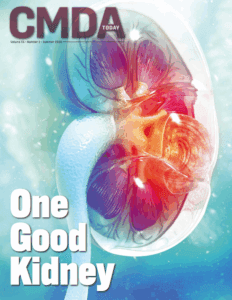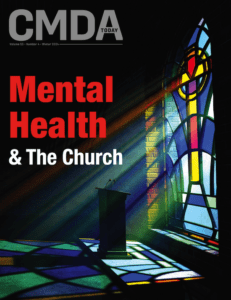Losing Our Language to Bureaucratic Jargon
As is often the case, this quarterly column is heavily dependent on my current reading. This time it is Roger Scruton’s Fools, Frauds and Firebrands. Healthcare professionals are being pressured into all sorts of actions, actions which make them uncomfortable and undermine their deepest commitment to the good of the patient.
John Patrick, MD
As is often the case, this quarterly column is heavily dependent on my current reading. This time it is Roger Scruton’s Fools, Frauds and Firebrands. Healthcare professionals are being pressured into all sorts of actions, actions which make them uncomfortable and undermine their deepest commitment to the good of the patient. Roger Scruton helps us understand why. Nevertheless, don’t rush out and buy it immediately, because this book is not an easy read without some considerable background knowledge, which busy healthcare professionals rarely have the time to acquire.
We all know there has been an epidemic of sexually transmitted disease since the 1960s with the liberalization of sexual activity and the divorce of sex and marriage. We all know that surgical removal of biological sex organs to affirm gender choice produces sterility and does not guarantee mental peace. We all know that children need fathers in their lives. Etc., etc., etc. Write your own list and send it to me, but this professional wisdom is not accepted by the anointed elite. Patients as clients are to be affirmed in every choice and prescribed what they want. Serious religious people are finding it difficult to maintain their moral integrity under this current “woke” rule. The “woke-ists” want tolerance, but they do not practice it. How did this happen in one generation?
Healthcare is a one-on-one activity. As such, healthcare professionals have been respected for centuries, despite having little effective therapy, because they recognized diseases and knew the prognosis, which allowed them to tell the truth and accompany their patients as far as the gates of death. This practice was solely concerned with the good of the individual patient, while the ethics governing that relationship used to be covenantal.
Epidemiology and public health, on the other hand, are intrinsically utilitarian in their ethics and statistical in their methods. The person disappears and only a number is left. Outcomes are everything. Bad ones are simply collateral damage. Vaccines are an iconic example. Almost all vaccines injure some people, but eliminating a disease like smallpox was thought worthwhile by almost everyone, despite the risks. The population at large only knew this intuitively, but they trusted the medical profession implicitly. The management of COVID-19, plus media coverage, has once again severely damaged that trust. The arrogance of some of the main players beggared belief. The naivety of most of the politicians or, worse, their cowardice and unwillingness to say they didn’t know enough to make wise decisions compounded the disaster.
All this introduction is simply to point out that we need to educate ourselves and our patients in the language of ordinary human beings. Start by asking them whether they want a healthcare professional who has moral integrity or if they simply want treatment their way. Have W.H. Auden’s brief poem in hand:
Give me a doctor partridge-plump,
Short in the leg and broad in the rump,
An endomorph with gentle hands
Who’ll never make absurd demands
That I abandon all my vices
Nor pull a long face in a crisis,
But with a twinkle in his eye
Will tell me that I have to die.
This is not describing someone practicing half-baked psychology or meaningless empathy but a friend talking to a human being in a common parlance.
The elite ruling us are not malicious but ignorant, whilst thinking themselves much smarter than ordinary folk. In Intellectuals and Society, author Thomas Sowell points out that they would need to be at least 10 times wiser than the rest of us in order to have more collective wisdom. Most of them conflate wisdom and knowledge without even noticing. We all know uneducated folk who are wise and countless professionals who don’t know what wisdom is.
Once a group of people believe they know how to make everything better for everyone, they easily become obsessed with their own utopian dreams. Socialism is a utopian dream, which I bought into as a student and was instantly cured by a trip behind the Iron Curtain. The world experimented with communism more than 20 times in the 20th century, and it was a disaster in every case. Millions were sacrificed. To do the same experiment multiple times and expect different results is Albert Einstein’s definition of idiocy. (For more information, listen to Stephen Kotkin talking with Peter Robinson about Joseph Stalin on the Hoover Institution’s Uncommon Knowledge.)
By the time the 20th century was rolling along, left-wing intellectuals realized that Karl Marx’s prediction of the collapse of capitalism was wrong. Vladimir Lenin and Stalin had gained power by force and maintained it by fear in the Soviet Union. The ballot box doesn’t work for them. They turned their attention to the institutions, especially the universities, and they have succeeded in all, except the STEM faculties, having installed 90 percent left leaning faculty. Their students are fed propaganda and get jobs running the bureaucracy but are often totally incompetent with numbers. Sowell has a wonderful story from the 1950s, when he was placed in the Department of Labor as a summer student worker. They didn’t know what to do with him, and so they asked him to find the data showing the effectiveness of minimum wage programs. They knew they were wonderful, and they provided more work in the department than any other program, but they didn’t have the data to boast about it. Trouble was, he actually found minimum wage laws were counter-productive. The officials were appalled and suppressed his work. Sowell was a Marxist at the time, but that summer experience started to erode his beliefs.
Here is a quotation from philosopher Roger Scruton in Fools, Frauds and Firebrands with which I am sure Sowell would agree:
“Thinkers of the left don’t start with data but with their own ‘insights’ and then look for the data to support them. Often, they begin their critique of our social and political systems with an assault on the language [think Newspeak in Orwell’s 1984], as part of a far-reaching strategy to put power and domination at the top of the political agenda, while debunking the ways in which human relations are mediated by the search for agreement. Leftist Newspeak is a powerful tool; it wipes away the face of our social world, it describes the supposed reality that underlies the genial appearance and explains the appearance as a deception. Marx’s ‘material forces’, ‘antagonistic production relations’ and ‘ideological superstructures’; Foucault’s ruling ‘episteme’ and ‘structures of domination’ … all those mystifying technicalities have the purpose of confiscating reality from ordinary human understanding….”
The greatest task, therefore, is to rescue the language of politics: to put within our grasp what has been forcibly removed from it by jargon. It is only when we have again found the language that is natural to us that we can answer the great accusations that are being constantly thrown at our world by the left.
The young social justice activists wax hysterical over the wage differential between males and females without looking at hours worked; they talk constantly about patriarchy and domination without noting that their own parents don’t talk like that; and they pontificate about the horrors of slavery without noting that vastly more slaves went to the Muslim world where the men were immediately castrated, and there are more slaves in Mali and Sudan today than ever crossed the Atlantic Ocean—all facts which in no way condone the unspeakable nature of slavery.
Finally, if you have never watched 84 Charing Cross Road, do so. You will see a realistic view of post-war Britain without any mention of power differentials, patriarchy or domination; instead, it is simply a culture that can only be understood by reference to the way Judaism and Christianity formed it.



